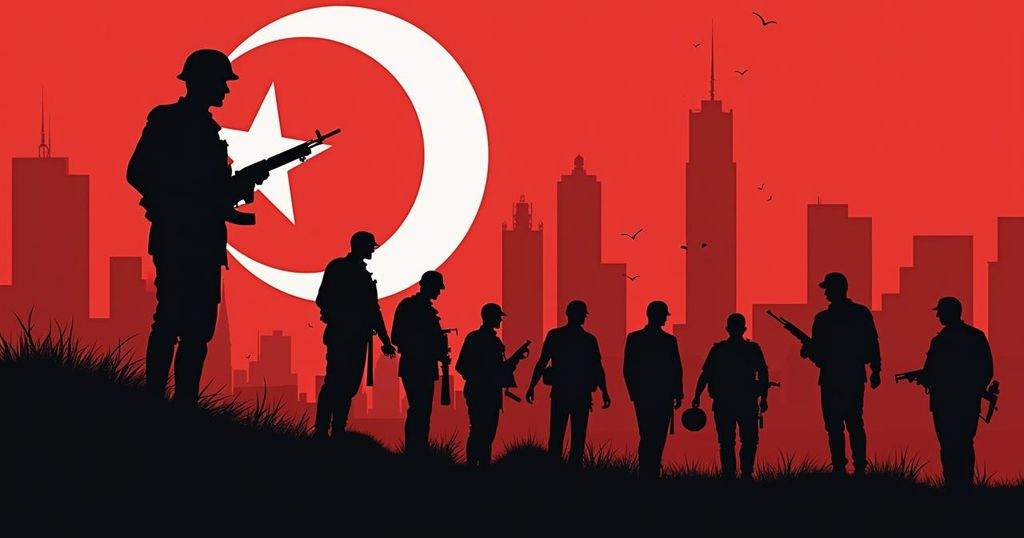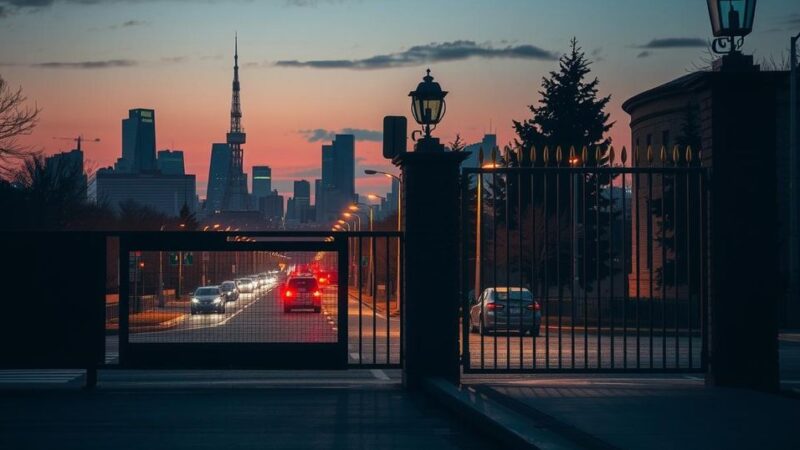The Tunisian army’s expanded role in politics under President Kais Saied has raised alarms ahead of an approaching presidential election, resulting in concerns about the implications for democracy in Tunisia. Historically, the military had been kept marginalised, but its influence has surged since 2011, particularly through military appointments to key ministries and its involvement in Saied’s power consolidation efforts. As tensions emerge over policy issues, the military now faces crucial decisions regarding its allegiance and the future of democratic governance in the country.
In Tunisia, the growing influence of the military in politics has raised significant concerns ahead of the upcoming presidential elections. Historically marginalised under the leadership of Presidents Habib Bourguiba and Zine el-Abidine Ben Ali, the Tunisian army found popularity during the 2011 revolution, being seen as a protector of democracy. However, since President Kais Saied’s assumption of the presidency in 2019, the military’s role has expanded substantially. Saied, seeking military support, has appointed high-ranking officers to government ministries—an unprecedented move in Tunisian history. As the country approaches what is considered an unfair presidential election, observers are alarmed by the potential implications of military involvement in governance. Unlike other regional armies, the Tunisian military historically refrains from political entanglements, a stance established by Bourguiba, who advocated for keeping the military confined to barracks following independence in 1956. The dynamic shifted in the aftermath of the 2011 revolution, as the army was increasingly celebrated for its role in preserving public order and conducting elections. President Saied has actively cultivated relations with the military, using their support to bolster his authority, especially during his controversial power grab in July 2021. This shift, characterized by the direct involvement of the military in political affairs, has resulted in a notable rise in military appointments within the government. However, tensions have surfaced between Saied and military leaders surrounding key policy issues, including water shortages and the arrest of political figures perceived as opposing his regime. As the presidential election looms, the army is caught in a pivotal position, balancing its historical role as a guardian of democracy against the backdrop of an increasingly authoritarian political landscape under Saied. The military now faces critical decisions regarding its allegiance and the potential consequences of supporting or resisting the current administration. Observers are keenly aware of the implications this could have for Tunisia’s democratic future and whether the military will uphold its mandate to protect the republic amidst growing authoritarianism.
The political landscape in Tunisia has undergone significant changes since the revolution that ousted Ben Ali in 2011. Under previous regimes, the military remained a marginal entity, largely uninvolved in the political arena. Bourguiba’s administration strictly confined the military to its barracks to avoid any potential coups, a policy that persisted during Ben Ali’s rule. However, following the revolution, the army became increasingly involved in safeguarding public order and facilitating electoral processes. Under President Kais Saied, who took office in 2019, the military’s role has evolved dramatically, as he has strategically aligned himself with military leadership to consolidate power and navigate the political sphere, especially following his controversial actions in July 2021, viewed by many as a constitutional coup.
As Tunisia prepares for its presidential elections, the growing role of the military within the political sphere raises profound questions about the future of democracy in the country. Observers are wary that increased military influence could undermine civilian governance and lead to a departure from democratic principles. The unfolding situation underscores the intricate balance that the military must maintain between historical obligations to protect the state and the emerging dynamics of Saied’s administration, raising critical issues about the army’s role as a potential enforcer of authoritarian rule or its commitment to democratic ideals.
Original Source: www.middleeasteye.net







